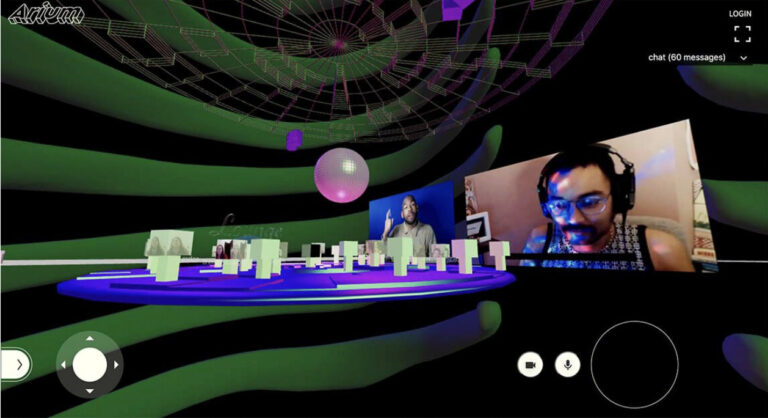Remote Access is a disability nightlife event informed by disability history, technology, and artistry. At the start of the COVID-19 pandemic, a collective of disabled artists and designers created an event to showcase how disabled people often participate in social life from our homes and beds. This contribution offers a living archive of the party and its evolution, as the planners created protocols for collective access through methodologies such as participatory audio description and live description of musical sound. We discuss how each new event offered opportunities for designing new practices based on disabled knowledge and expertise. As a result, the series of Remote Access nightlife parties became an ongoing opportunity to develop iterative accessibility protocols and community standards for remote/digital participation.
Articles by moira williams
moira williams is a disabled Indigenous artist, cross-disability cultural activist, and access doula, cocreating and weaving disability justice together with crip celebratory resistance and environmental justice. moira believes in access as art and “access intimacy” as an attitude needed to push beyond the limitations of the Americans with Disabilities Act. moira’s work with water focuses on access intimacy and water intimacy as ways forward to accessible waterfronts. In 2021, as part of Works On Water’s Tending the Edge, moira engaged New York City’s disability communities along with the NYC Department of City Planning and the Comprehensive Waterfront Plan. As part of this, moira created an online and in-person Disability Cabaret on an accessible boat. moira received a Santa Fe Arts Institute REVOLUTION, Blue Mountain Center Harriet Barlow Residency, Disability + DANCE NYC Social Justice Fellowships, a U.S. Artists Disability Futures Fund, and Laundromat Project Abundance grants. Their co-creative work has been at Tangled Art + Disability, Canada, CUE Art Foundation, Common Field, i-Park Biennial, Landscape Research, UK, ARos Museum, Denmark,and MoMA PS1. moira co-curated TALK BACK at Flux Factory with Lexy Ho-Tai, the first NYC exhibition and three-day convening to center intersectional, intergenerational, cross-disability artists and activists, and which was cited in The New York Times.
